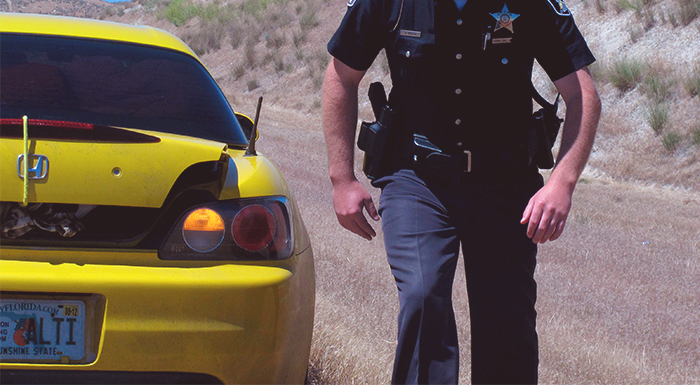Although law enforcement officers in areas bordering legal marijuana states are infamous for targeting people from out of state in hopes of charging them with marijuana possession and driving while impaired, a federal court in Denver has determined that the practice of searching motorists based on their residency goes against the grain of the United States Constitution.
Earlier this week, the Tenth U.S. Circuit Court of Appeals ruled that a couple of Kansas troopers violated the rights of Peter Vasquez when they stopped him along Interstate 70 and searched his vehicle for weed. Vasquez was reportedly driving alone at night when the officers noticed he was from Colorado—using his license plate as the primary excuse to conduct a traffic stop.
No marijuana stash was found during the search.
In court, the officers argued that they had the right to search Vasquez’s vehicle because he was a resident of a legal marijuana state and traveling on a “known drug corridor.”
Fortunately, the court disagreed with this logic, ruling that it would then be necessary to stop and search every I-70 traveler who lives in over half the states where marijuana has been made legal for medicinal and recreational use.
“It is wholly improper to assume that an individual is more likely to be engaged in criminal conduct because of his state of residence, and thus any fact that would inculpate every resident of a state,” Circuit Judge Carlos Lucero wrote in the decision. “It is time to abandon the pretense that state citizenship is a permissible basis upon which to justify the detention and search of out-of-state motorists, and time to stop the practice of detention of motorists for nothing more than an out-of-state license plate.”
Only one of the three judges’ on the panel offered a dissenting opinion. Chief Judge Timothy Tymkovich said the case “presents a close call on reasonable suspicion,” but that the officers had “objectively reasonable and articulable suspicion” that illegal activity had occurred.
The Court’s decision carries legal authority in Colorado, Kansas, New Mexico, Oklahoma, Utah, and Wyoming.











